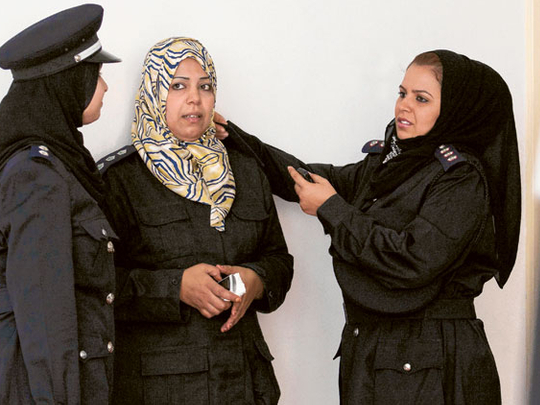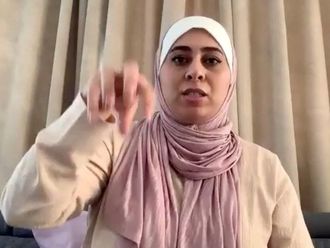
London: When fighting erupted in Misrata, Libya, its women stepped up to nurse wounded revolutionary soldiers, cook meals for the front-line brigades, raise money for weapons and care for orphans.
Medical student Hannin Mohammad got a rare opportunity for a young woman in Libya: to work in a hospital beside men during the six-month siege. "When we were students, we were not allowed even on the wards for three years, unlike the boys," the 21-year-old said. "Now, I know so much."
With Muammar Gaddafi driven out, Mohammad and other Libyan women are anticipating more freedom and greater opportunity. Yet, looking to the new government, there is only one woman on the 43-member National Transitional Council: head of legal affairs and women's representative Salwa Fawzi Al Deghali. In May, with the war at its height, the NTC had two women members.
Gaddafi's Green Book
That doesn't bode well for the likelihood women will emerge with more rights after four decades under Gaddafi, whose attitude toward them was full of contradictions. His Green Book, setting out his governing philosophy, condemns gender discrimination. It also states that men and women can never be equal due to biological differences.
"There aren't many women's faces that you see in the hallways [of the NTC]," said Jeffrey Feltman, the US Assistant Secretary of State for Near Eastern Affairs, who visited Tripoli September 14.
"This is something that is of concern to us." Feltman noted a commitment made by Mustafa Abdul Jalil, chairman of the NTC, to appoint women as ambassadors and ministers. "I don't doubt the sincerity of the leadership," Feltman said, "But the sincerity needs to be translated into something that people can see."
Civil society groups
Under Gaddafi, there were no independent women's rights groups. But hundreds of civil society groups sprung up in Benghazi alone during the uprising, many run by women.
Gaddafi's attitude towards women
In 2009, Libya ranked near the bottom of the political rights and civic voice for women scale issued by Freedom House, a Washington-based non-governmental organisation, scoring 1.8 out of five.
Gaddafi jetted around the world with an all-female cadre of bodyguards.
During a 2009 visit to Rome, he summoned 500 "beautiful Italian girls" to a gala evening at his ambassador's residence, where he told them to convert to Islam.
As he fought the uprising, Gaddafi called women to his side. A few were among his most visible supporters, such as daughter Aisha and Libyan TV anchor Halal Misrati.
Gaddafi's spokesman, Mousa Ebrahim, wrongly predicted in July that every woman would "become a killing machine" to defend Gaddafi.











